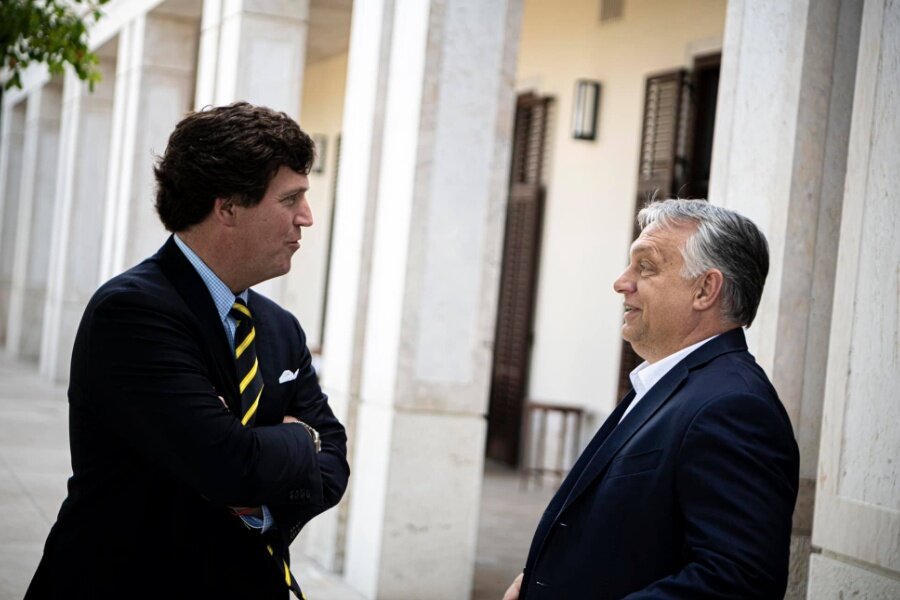Hungary pledges to thwart efforts by globalist European bureaucrats like Guy Verhofstadt to impose sanctions on Tucker Carlson for his interview with Russia’s Vladimir Putin.
Amidst uproar from the left-leaning establishment over Carlson’s choice to interview the Russian leader, former Belgian Prime Minister and current Member of the European Parliament, Guy Verhofstadt, urged for an EU travel ban on the American journalist.
He also advocated for the bloc to initiate the process of imposing sanctions on the EU’s diplomatic body, led by Spanish socialist Josep Borrell.
However, the organization lacks the sole authority to impose sanctions on individuals. Instead, it can only provide evidence to the European Council, the EU’s executive branch consisting of the heads of state or government of EU member states. Any of these leaders has the authority to veto a decision.
As a socially conservative nation, Hungary holds the power to prevent the EU from imposing sanctions on Carlson.
On Tuesday, the country reaffirmed its stance, stating that it would indeed block such a measure if it came before the Council.
In response to reports about possible EU sanctions against the American journalist, Balázs Orbán, the political director for Hungarian Prime Minister Viktor Orbán, took to social media, stating unequivocally, “Don’t bother trying – we won’t let it happen!”
Budapest’s immediate rejection is expected to provoke further ire from Verhofstadt, who has been leading the effort to strip EU member states of their veto power due to Hungary’s resistance to funding support for the war in Ukraine.
The principle of unanimity and the use of national veto powers, akin to how senators or electoral college votes are allocated in the United States, played a crucial role in shaping the European Union. It ensured that smaller member states wouldn’t be completely dominated by larger ones like France or Germany.
However, with the increasing influence of Brussels, there’s been a rising resentment towards conservative nations like Hungary and Poland as they stand firm in defense of their principles and interests.
Verhofstadt isn’t the only one supporting the elimination of national veto power. The EU’s top diplomat, Foreign Affairs chief Josep Borrell, also made the case in December that, considering the threat Russia poses to European democracy, it might be essential to do away with unanimity for foreign policy decisions.
Share your thoughts by scrolling down to leave a comment.













